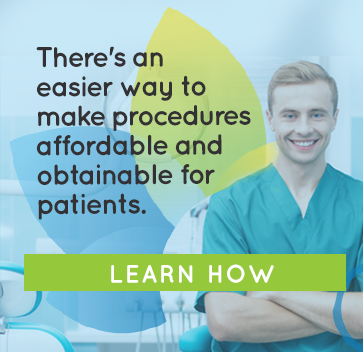By Compassionate Finance on Jan 2, 2018 8:04:00 AM
When searching for better ways to improve the patient experience and your online reputation, getting proactive about feedback can give you an advantage.
In a digital economy where consumer opinion is strongly driven by consumer review apps like Yelp, doctors realize the power of collective endorsement and criticism. Just as positive Yelp reviews might drive a customer from one coffee shop to another, patients are taking doctor reviews just as seriously.
In fact, the Manhattan Institute recently ran a study of New York hospitals’ Yelp ratings and found that positive online reviews were directly correlated with better care. The quality of patient care is more visible than ever before, and that’s driving doctors to go above and beyond to improve the patient experience through methods like offering affordable payment plans.
While Yelp, Google reviews and even industry specific sites like Healthgrades are a good start, they’re only one channel for feedback and lack the ability to receive robust information to the questions you may have to drive proactive improvement. We’ve outlined three additional ways your practice can gather valuable patient feedback to stay ahead of the curve.
1. Online Survey, Anonymous or Personal
The online survey is an obvious choice, but it’s also still one of the most powerful tools at your disposal. It’s among the easiest feedback methods to roll out and it’s convenient for your patients, too. SurveyMonkey offers HIPAA compliant survey presets that physicians can quickly and seamlessly integrate into their own practice.
From here, not only can you learn about your patient’s opinion of their experience, you can start learning the answers to the questions you want to ask.
You can see if they thought they had to wait too long, if they feel like communication from their doctor is consistent enough, or if their questions about payment options were thoroughly answered. You can also learn, for instance, about a patient’s smoking habits or whether they’re consistently exercising.
All of this information is vital to understand if your practice is meeting your patients needs as well as you could. Improvements, even small ones, can mean the difference between a glowing or disappointed Yelp/Healthgrades review. It could also make a difference in your case acceptance rate.
Note: If you set up anonymous surveys, you will have less access to detailed personal information, but you also raise the likelihood for honest responses.
2. Structured Patient Interview
While generic questions such as “Did your appointment go well?” can offer useful information, going through a brief, structured interview with the patient can help you better understand what went well — or not. The advantages here are immediacy and low overhead.
The interview can be conducted by a physician or an office manager, but doesn’t have to be formal and can be as short as five minutes. Take the time to draft 4-5 questions that can’t be answered with a simple “yes” or “no.” Ask, for instance, what they liked about their appointment or what they think could be improved. If necessary, be ready to ask follow up responses based on their answer so you can understand why they feel that way. This can be a great opportunity to learn if you’ve successfully answered all cost and payment-related concerns!
While this method has its pros, remember that you’re less likely to get the same level of honesty as you would from an anonymous online survey. Make a judgement call to decide who will conduct the interview, and ask a large enough sample size (i.e. 20 patients) to get an accurate assessment.
3. Chatbots
Chatbots and automated messaging services are already used by several doctors to assist with patient scheduling and appointment reminders, but they can be a valuable resource for feedback as well.
Through chatbots, not only can you ask some of the questions you might have otherwise saved for your structured interview, you can accomplish other post-visit tasks such as: prescription refills, results of tests and follow up on recovery.
As AI becomes a more integral part of the patient experience, chatbots will become an increasingly more prominent force for both doctors and patients. By hopping on the train earlier than not, you can speed up the response time to assist your patients without cutting into your practice’s own time.
Feedback Will Help Answer Patient Payment Concerns
Given one of the largest barriers to treatment is cost, any feedback involving how well your practice accommodated for a patient payment plan will be hugely beneficial to you. See whether or not they felt all of their options were clearly explained, or if they had any lingering doubts/concerns following your conversation with them.
By diligently listening, you’ll be in a better position to help patients get the care they deserve. You’ll also be more likely to see those ever-influential five-star ratings.






comments